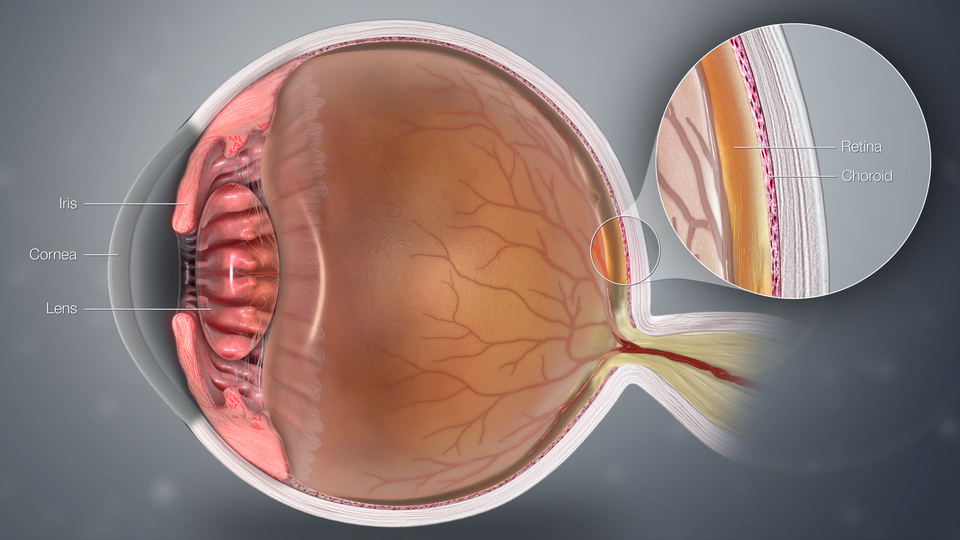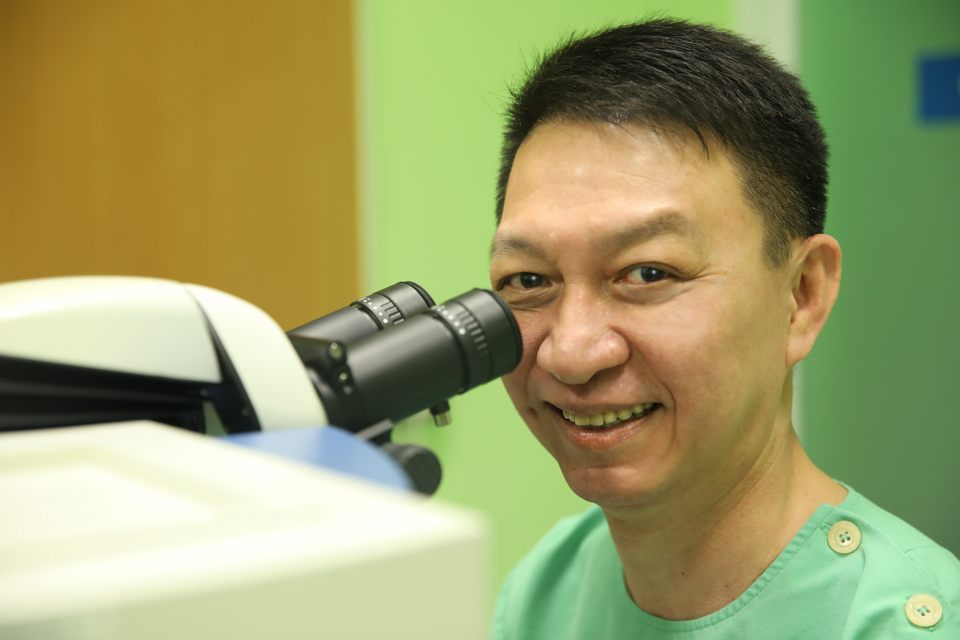
The human eye ball is an amazing organ. These small orbs are able to provide features that we take for granted. It can swivel, it can focus, it is sensitive to wavelengths between 380 and 760 nm, and it can produce electro-chemical power. However, its major ability is at the crystalline lens and the tear film-cornea interface, and these are the major refractive components in the eye. They act together like a compound lens to project an image onto the light sensitive retina at the back of the eye. It is in this exacting and exciting area of the eye’s lens and refraction that the Bangkok Hospital Pattaya’s Dr Somchai T shoke-satian is a world renowned specialist.
Vision involves refraction of the light rays, which is why this is so exacting. The visual image entering the eye is refracted as it passes from air through the tear film-cornea interface. It then travels through the aqueous humor and the pupil (the colored part of the eye controlled by the iris muscle) and is further refracted by the crystalline lens before passing through the vitreous gel and impinging on the retina. So vision, the primary human sense, begins with light entering the eye and the formation of an image on the retina where light is transformed into electro-chemical impulses that travel towards the brain via the optic nerve. And all that is only part of the working of the eye and lens.

The crystalline lens is flexible and can change its shape using the mechanism of accommodation, by adjusting the ciliary muscle so that the images may be more accurately focused on the retina. It continues to grow throughout a person’s lifetime. The crystalline lens achieves transparency due to its composition, as 90 percent of it is formed by tightly packed proteins.
Unfortunately as the lens ages it becomes less pliable and it becomes difficult to get sharp focus. And this is where Dr. Somchai’s expertise comes in.
He performs refractive surgery to correct “refractive errors”, nearsightedness (myopia), farsightedness (hyperopia), astigmatism, presbyopia as well as SuperSight (or refractive cataract surgery).
He has all types of equipment, competency and staff to do both “cornea” and “lens” refractive surgery in all age groups.
- The younger patients who are suitable for laser vision correction or corneal refractive surgery. Dr. Somchai has the latest generation laser machine which can perform FemtoLASIK (bladeless), SmartSurf (touch-free) and PresbyMax (multifocal corneal reshaping). With the technology moving so fast, he has changed his laser machine to upgrade the technology four times since 2003 and more than 10,000 procedures have been successfully carried out.
- The older patients, especially after cataract develops, are offered SuperSight Surgery with different lenses together with all related accessories and technology of replacement lens measurement, calculation and implantation using the international Carl Zeiss standards.
Vision is an amazingly complex situation, and losing it as we get older is even more complex and worrisome, but we can all be happy that we have someone in our midst with the skillset needed to restore our vision. For me, having had SuperSight surgery, all I can say is “Thank you Dr. Somchai. I can see again.”
(Part 1) Who is Dr Somchai T.shoke-satian M.D.?
(Part 2) Who is Dr Somchai T.shoke-satian M.D.?
(Part 3) Dr. Somchai T.shoke-satian M.D. gets down to business
(Part 5) Dr. Somchai the “Super” Ophthalmic Surgeon and SuperSight
 |
 |
 |





